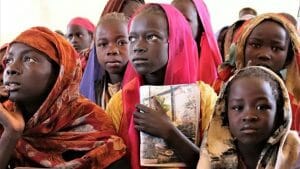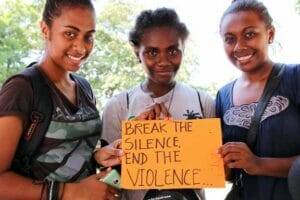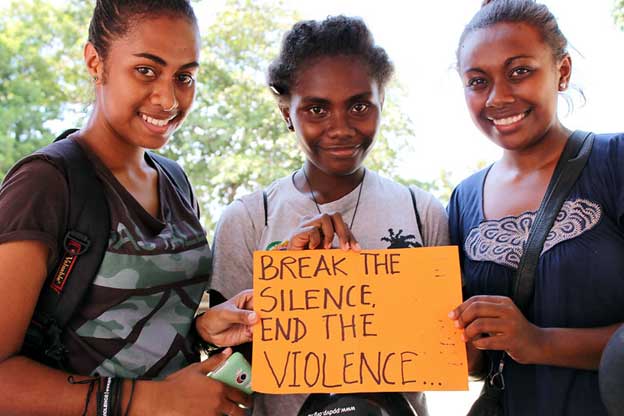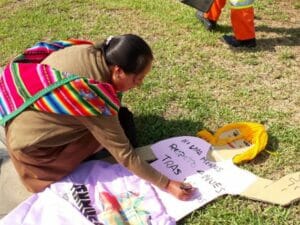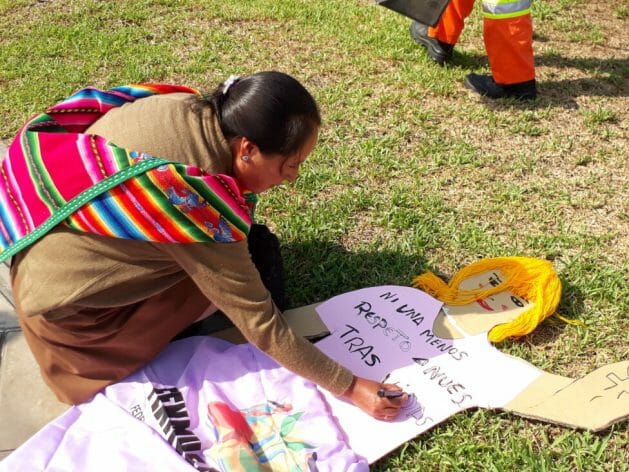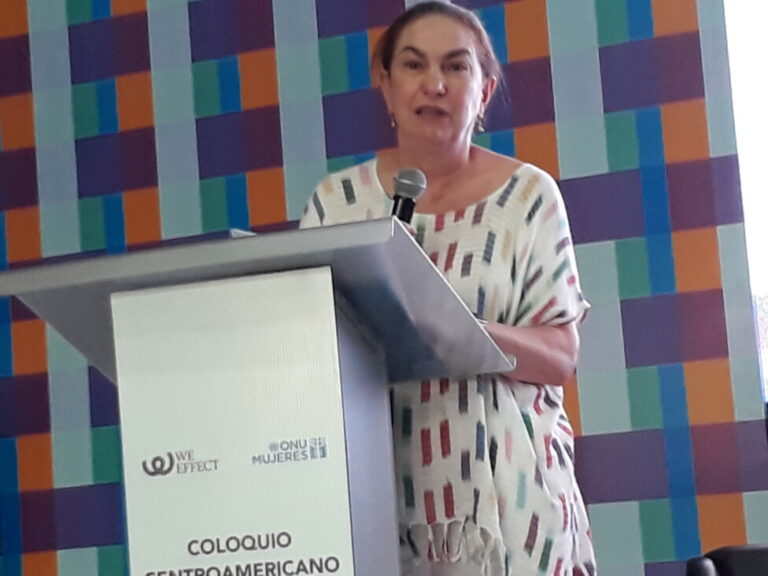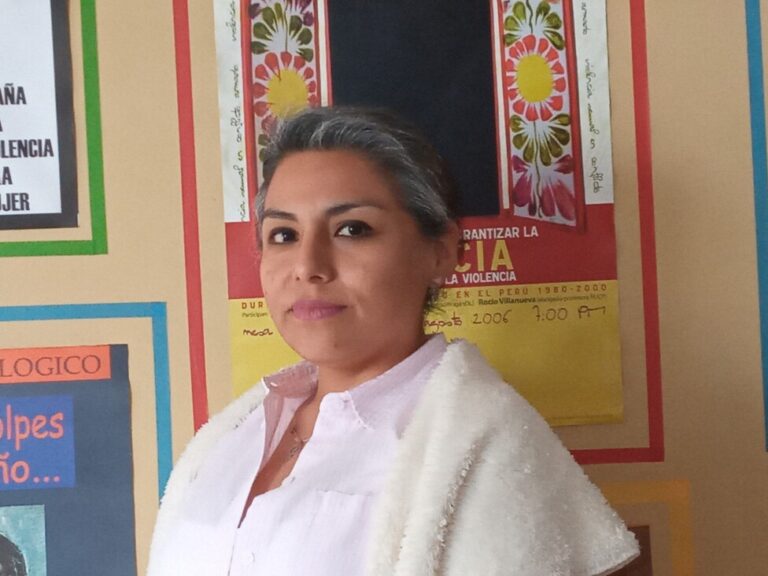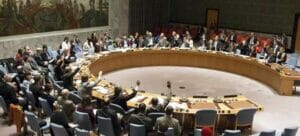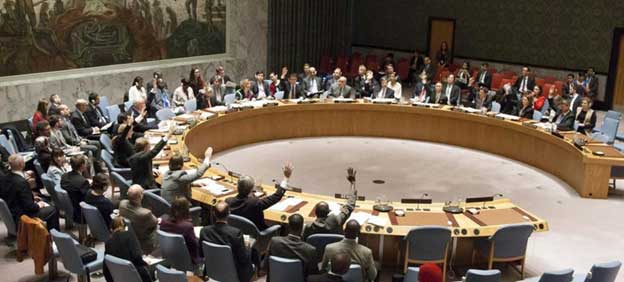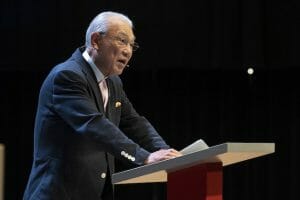

Yohei Sasakawa, WHO’s Goodwill Ambassador for Leprosy Elimination, speaks at the two-day Bergen International Conference on Hansen’s Disease. The conference coincided with the 150th anniversary of the discovery of Mycobacterium leprae by Norwegian doctor Gerhard Armauer Hansen. Credit: Thor Brødreskift/Sasakawa Leprosy (Hansen’s Disease) Initiative
By Joyce Chimbi
NAIROBI, Jun 22 2023 (IPS)
The 1873 discovery of Mycobacterium leprae, the causative agent of leprosy by Norwegian doctor Gerhard Armauer Hansen, remains one of the greatest paradigm shifts in medical history, a true revolution.
“Before the great discovery, even in the days when communication and transportation technologies were not as developed as today, leprosy was detested by the entire world. Leprosy was believed to be a divine punishment or a hereditary disease; once affected, patients were segregated to remote areas and islands for life,” says Yohei Sasakawa, WHO’s Goodwill Ambassador for Leprosy Elimination.
Sasakawa, who also serves as chairperson of The Nippon Foundation, spoke during a two-day conference in Bergen, Norway, to commemorate the 1873 discovery. In attendance were over 200 people, including medical, human rights, and historical preservation experts, researchers, NGOs, and organizations of persons affected by the disease.
The Bergen International Conference on Hansen’s Disease, held on June 21 and 22, 2023, was organized by the Sasakawa Leprosy (Hansen’s Disease) Initiative and the University of Bergen. It focused on medical efforts against leprosy, human rights, and dignity issues and preserving the history of leprosy for the lessons it can teach future generations. All three are pillars of the Sasakawa Leprosy (Hansen’s Disease) Initiative’s activities for a world free of leprosy and the discrimination it causes, in line with the UN’s Resolution on Elimination of discrimination against persons affected by leprosy and their family members.
In his speech to delegates, Sasakawa acknowledged the extraordinary advances made by medical professionals since Dr Hansen’s discovery that leprosy was neither a curse nor a punishment from God but a chronic disease caused by a bacillus.
With the 1873 discovery, leprosy went from being a mythological divine disease shrouded in mystery to something one could observe and explain—although it would take more than half a century before a cure was found.
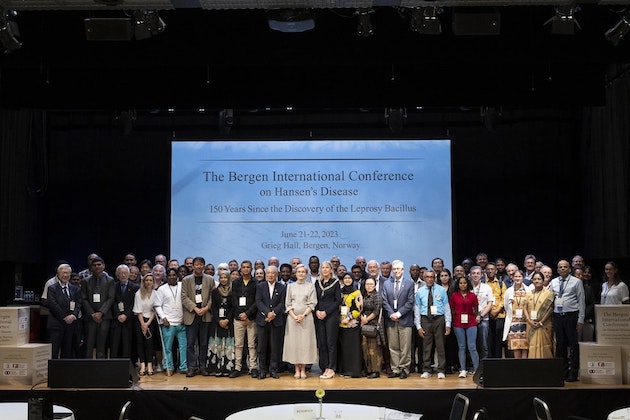
Delegates at the Bergen International Conference on Hansen’s Disease held on June 21 and 22, 2023. The conference was organized by the Sasakawa Leprosy (Hansen’s Disease) Initiative and the University of Bergen. Credit: Thor Brødreskift/Sasakawa Leprosy (Hansen’s Disease) Initiative
Margareth Hagen, Rector, University of Bergen, said there was a clear shift in the scientific discourse about leprosy before and after the discovery.
Sasakawa said the journey towards a cure started with a single anti-leprosy drug to more effective drug regimens and, ultimately, a recommendation from WHO’s medical team that leprosy patients receive drug regimens consisting of multiple drugs.
“A single anti-leprosy drug tended to increase drug resistance. Since the development of multi-drug therapy, with early detection and treatment, leprosy has become totally curable. About 60 million patients have been cured over the last 40 years,” he said.
Abbi Patrix, the great-grandson of Dr Hansen, now responsible for his great grandfather’s history, spoke about the man behind the science in a session titled, ‘My grandfather, my mother, the documents and me.’
Patrix, a European performance storyteller, talked about the day his mother, the only direct descendant of Dr Hansen at the time, learned that leprosy was named Hansen’s disease after her grandfather.
She was moved and wondered why? His mother was informed that Dr Hansen’s discovery had put a name to a disease that had confounded scientists and society alike and that labeling it ‘Hansen’s disease’ meant freedom for those afflicted because a cure could now be found.
The conference venue was, therefore, a recognition of his renowned great-grandfather because he was born in Bergen, and this was the site for his landmark 1873 discovery at only 32 years of age.
WHO Director-General Dr Tedros Adhanom Ghebreyesus told the audience: “WHO was born halfway between 1873 and today, 75 years ago. Much progress has been made since the two major milestones in the fight against leprosy. But much remains to be done toward our shared goals of zero disease, zero disability, and zero discrimination. Cases of leprosy have decreased significantly in recent decades, but more effort is needed to recover from the health system disruptions of the COVID-19 pandemic and move further ahead.”
Ghebreyesus said the WHO was committed to supporting countries in their bid to eliminate leprosy in line with the roadmap for neglected tropical disease for 2021 to 2030.
“So far, 49 countries have eliminated at least one neglected tropical disease, including Human African trypanosomiasis, rabies, and trachoma. With your support and those of our global partners, we can achieve that goal for leprosy too.”
Other dignitaries who spoke at the conference include United Nations High Commissioner for Human Rights Volker Türk, who said the conference celebrated medical innovations over the last 150 years.
“But when leprosy was eliminated as a global public health problem in 2000, it did not mean that the disease disappeared. Over 250,000 people suffer from leprosy every year, 15,000 of them are children. The actual figures are likely far higher,” he emphasized.
“Around three to four million people who have already been cured still bear varying degrees of impairment. The burden of leprosy is heaviest in countries with the greatest inequality, poverty, and marginalization.”
Türk further said that to better the lives of people affected by leprosy, “We need to address the physical symptoms, but we also need social and behavioral measures to address stigma and discrimination. We need comprehensive strategies with access to quality care, education, and social protection,” and told participants that “together we can make a real difference in ending leprosy, which causes immense preventable and unjustifiable suffering for thousands of people.”
Against this backdrop, Sasakawa stressed that further action is needed to combat stigma and discrimination, pointing out that as many as 130 discriminatory laws against leprosy are still in place in more than 20 countries.
“When respect for human rights is a must, it is unacceptable to leave such a large-scale and serious human rights violation unaddressed,” he said.
As the curtain fell on the Bergen conference of a remarkable journey to end leprosy over the last 150 years, Dr Takahiro Nanri, executive director of Sasakawa Health Foundation, noted that this was the third international conference that the foundation has helped to organize since launching its “Don’t Forget Leprosy” campaign in 2021 to help to ensure that the disease and those affected by it are not overlooked amid the coronavirus pandemic.
“Our purpose in organizing these conferences is to make the world aware that there are still many people who have Hansen’s disease and its consequences; to build momentum for collaboration toward the realization of a leprosy-free world; and to provide a setting for both formal and informal exchanges that can be a catalyst for innovative solutions that we as a foundation are ready to support,” he said.
IPS UN Bureau Report

